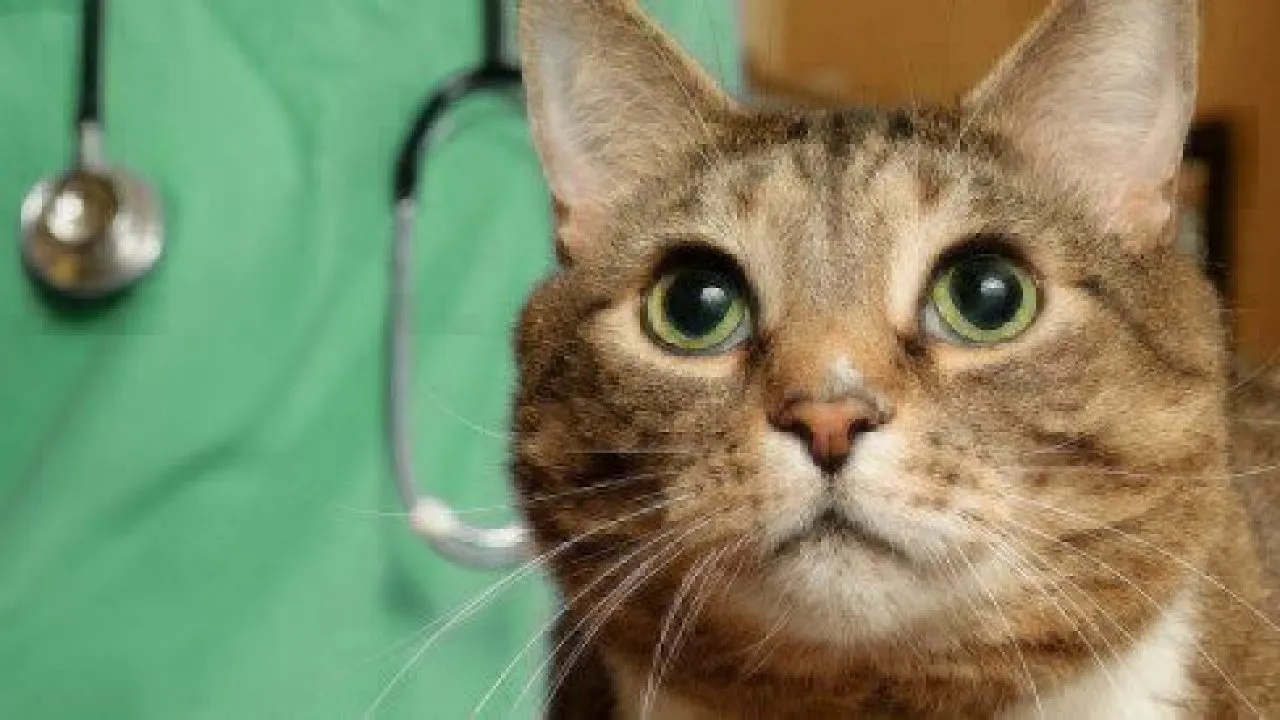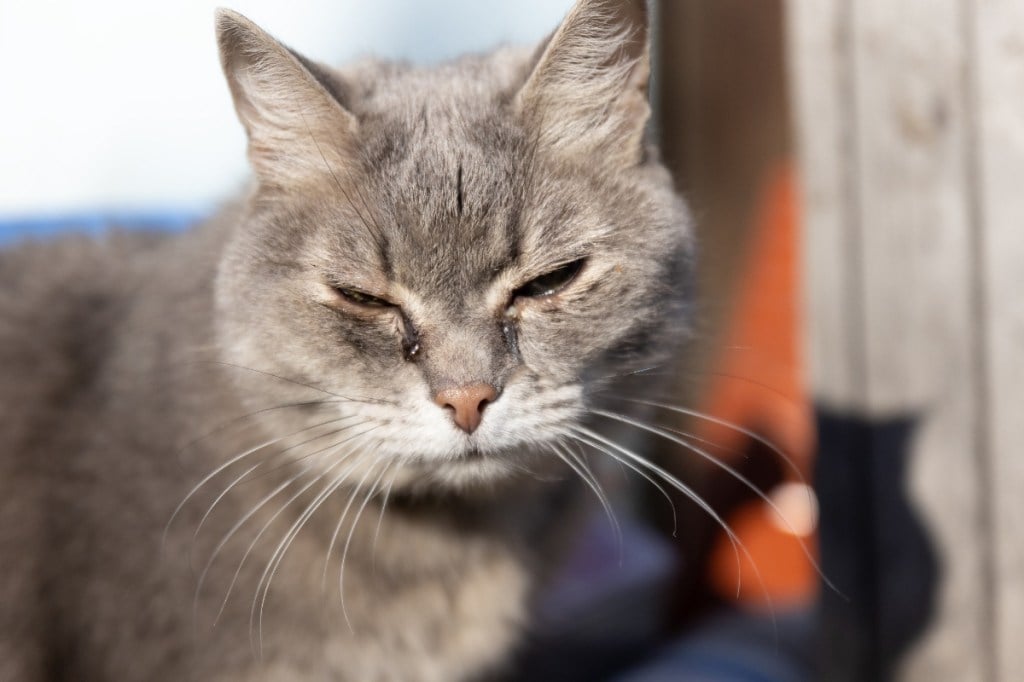Key Takeaways
- FIV is a virus that weakens a cat’s immune system and is much like AIDS in humans.
- It only affects felines and is not transmitted to humans.
- Cats primarily get FIV through blood after a deep bite wound or scratches.
- Symptoms of FIV include consistent upper respiratory infections and gastrointestinal upset.
- Healthy Paws covers the treatment of FIV as long as it is not a pre-existing condition.
Table of Contents
Feline Immunodeficiency Virus (FIV) is a virus that weakens a cat’s immune system. It is similar in structure to HIV (the human immunodeficiency virus) and causes a feline disease much like AIDS in humans, but it infects only felines and is not zoonotic (transmitted from animals to humans). FIV is classified as a lentivirus, which means that it progresses very slowly, and many cats don’t show signs until several years later. Though it is surprisingly common — roughly 2% to 5% of cats become infected — it can be both prevented and managed. Cats diagnosed with FIV can live happily for years after their diagnosis, as long as the disease is consistently managed.
How is FIV contracted?
FIV is primarily contracted through blood, either from a deep bite wound or deep scratches. It is sometimes, though rarely, passed from a mother cat to her kittens in utero or from her milk. FIV has also been detected in semen, but sexual transmission of the virus is extremely rare.
FIV is not passed casually from saliva, touching, or sharing litter boxes, food, or water. In fact, an FIV-positive cat and FIV-negative cat can live together their entire lives without ever transmitting the disease from one to the other. That said, it is still important to talk to your vet about how to proceed in a multi-cat household if one feline has FIV and the other doesn’t.
Outdoor cats or those that are free-roaming are most likely to contract FIV, as it is most often passed from cat to cat through deep bite wounds, the kind that usually occur from aggressive fights and territorial disputes.
Symptoms of FIV
Cats that have contracted FIV often won’t show signs until several, or even many, years after initially being exposed to the virus. Once the virus enters the body, the white blood cell count slowly declines; white blood cells fight infection. Without enough white blood cells, the affected cat becomes more susceptible to other health issues over time. It is typically these secondary infections that cause symptoms.
Symptoms include:
- Consistent upper respiratory infections
- Gastrointestinal upset
- Enlarged lymph nodes
- Swollen and inflamed gums
- Eye inflammation
- Kidney insufficiency
- Ear infections
- Skin infections
- Bladder infections
- Unkempt coat
- Weight loss
- Fevers
- Behavioral changes such as aggression, pacing, or anxiety
Testing for FIV
In many cases, the above symptoms are the result of an isolated issue — such as fungal, bacteria, or virus infections — with no presence of FIV. Regardless, checking symptoms for FIV is part of your cat’s annual checkup. If your doctor suspects FIV based on your cat’s health history and symptoms, she will conduct a blood test that detects FIV antibodies. If the antibodies are present, your vet will diagnose your cat with FIV.
Sometimes a false negative occurs with testing because there aren’t enough antibodies present at the time of the test. This happens in the early latent stages of the disease, and rarely in the very late stages if the cat is no longer producing antibodies. False positives are possible in cats that have received the FIV vaccine and in kittens that were infected in utero from their mother. Because of the possibility of false test results, a second test is recommended just to be sure that a cat has FIV.
Remember, if your cat has been diagnosed with FIV, they can still live a long and happy life.
How to care for a cat diagnosed with FIV
FIV is not curable. However, many FIV-positive cats do well day-to-day and are treated on an outpatient basis. Even still, it’s important to be vigilant when it comes to an FIV-positive cat’s health. If they begin to show symptoms of a secondary infection, they should be brought to the vet immediately and treated accordingly. For example, antibiotics may be prescribed if your cat has a bladder infection.
It’s also important to make sure your cat is eating nutrient-dense, high-quality food and drinking lots of water. Also, because their immune systems are weakened, FIV-positive cats should be kept indoors to shield them from potential diseases.
FIV-positive cats will also need to go in for wellness visits every six months. During a wellness visit, the veterinarian will perform a thorough physical examination and weigh the cat. Routine laboratory testing, including basic bloodwork and a urinalysis, will be needed once a year for FIV-positive cats.
How to prevent FIV
A vaccine is not currently available to prevent FIV in cats. To prevent your cat from getting FIV, reduce or eliminate their exposure to other cats, keep them indoors, and quarantine and test any new pets coming into your home.
FIV and pet insurance coverage
Treatment of FIV is covered by the Healthy Paws plan, as long as it’s not considered a pre-existing condition.
The content is not intended to be a substitute for professional veterinarian advice, diagnosis, or treatment. Always seek the advice of your veterinarian or other qualified health provider with any questions you may have regarding a medical diagnosis, condition, or treatment options.
If you love your cat like family but aren’t prepared to pay thousands of dollars for an unexpected accident or illness, consider cat health insurance. By enrolling as a kitten, you bypass pre-existing conditions exclusions, so your furry family member and your wallet are protected. Start by getting a free quote.







